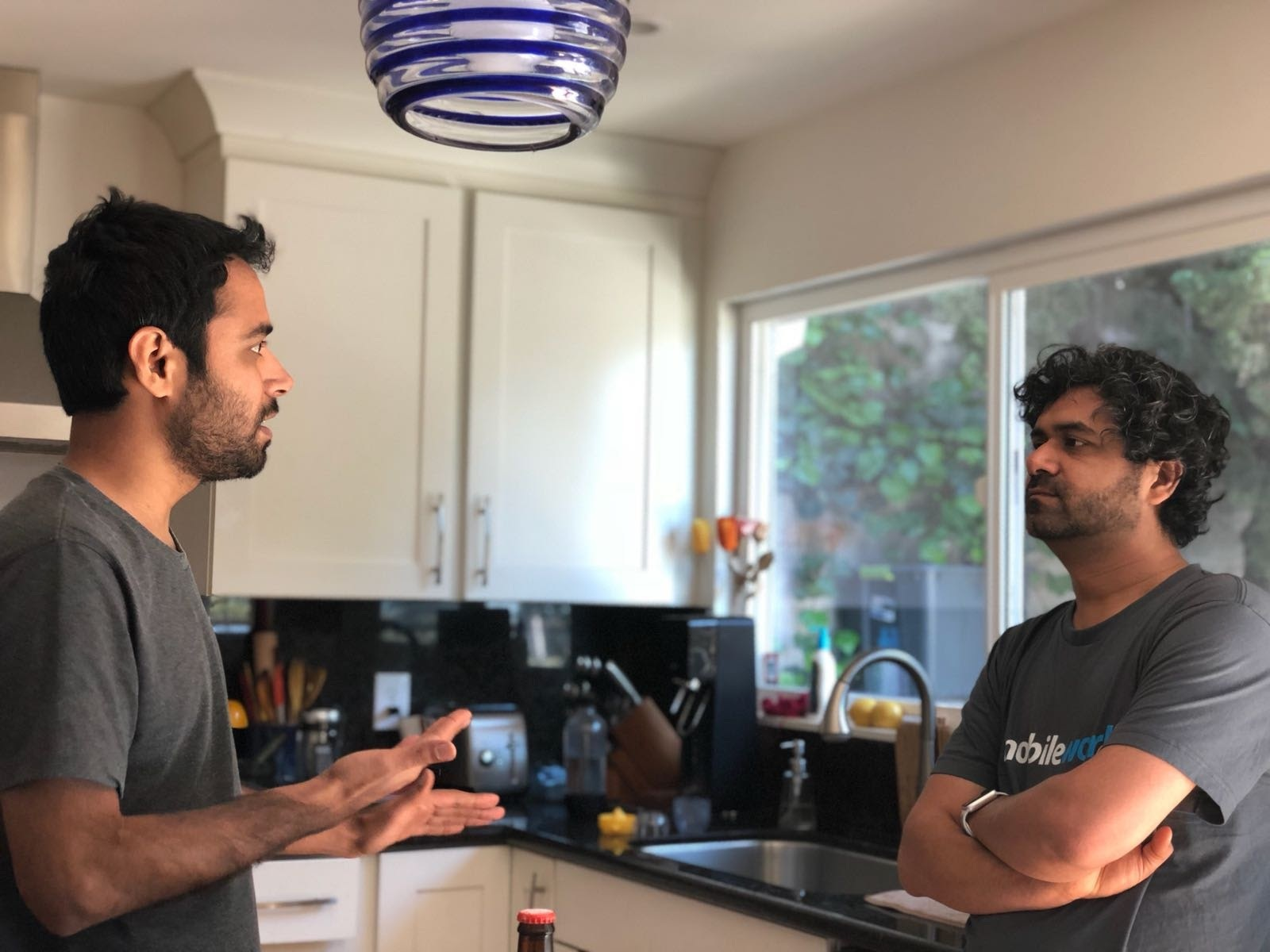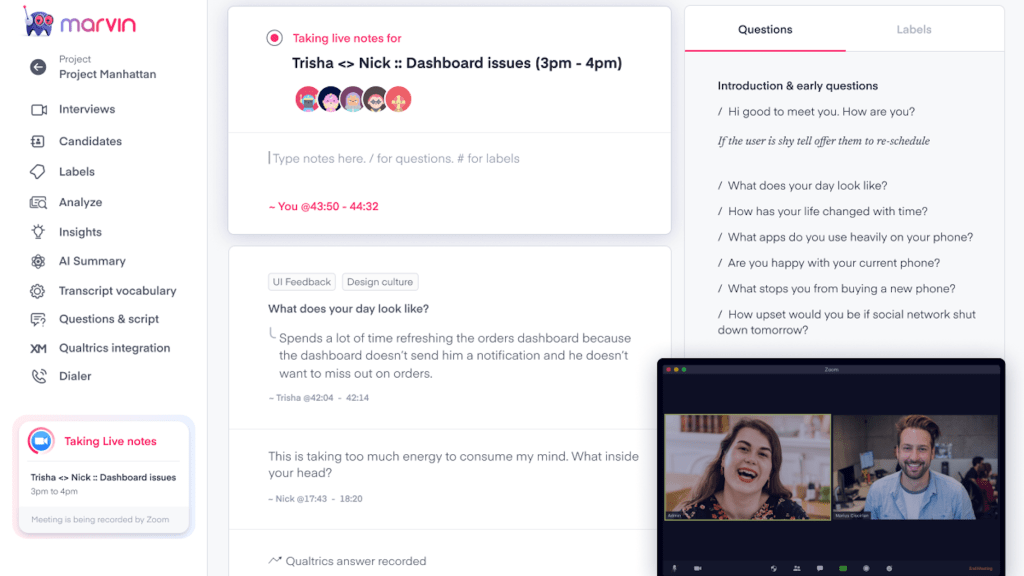Prayag Narula and his brother, Chirag Narula, aim to do for product and market research calls what Gong and Chorus.ai did for sales calls.
They created Marvin in 2020, a user research platform that helps companies better understand the needs of their customers. It stems, in part, from Prayag Narula’s background. He co-founded and ran marketing technology company LeadGenius for many years, guiding it to raise over $30 million in venture funding and grow to hundreds of employees.
Not coming from a sales and marketing background, he decided to hire a friend to join LeadGenius, who eventually transitioned to CEO at the beginning of the pandemic. At the same time, Prayag Narula stepped down as CEO, but stayed on the board of directors.
“Marvin is in some ways me going back to my roots in user-centric design,” he said. “Sales teams talk to customers and want to make a sale, while customer success teams want to upsell. With product and design teams, their only agenda is how to make the customer’s life better with the product. It’s the purest form of user engagement, and we wanted to leverage that.”
Narula went on to explain that at LeadGenius, the right tools were not available to get that done. Fast-forward to today, and thanks to video conferencing, it is easy to record conversations and mine them for information. However, more companies are seeing the value of being user-centric, but don’t know how to begin.

Marvin’s technology is an interview and user research tool that plugs into video conferencing tools, like Zoom, and takes notes during the calls. It also automates all aspects of user research, including scheduling interviews and turning the recordings into searchable insights with keywords and hashtags.
“Companies spend a lot of time talking to their customers, getting feedback and doing research,” Narula said. “All of this is happening over Zoom now. We help make these conversations more efficient and collaborative.”
Thousands of customers are already using Marvin, like Lattice and Simon-Kucher, and record thousands of minutes of recordings each week. Many users leverage the technology to talk to customers to understand their challenges and get feedback on a design or product. From those conversations, they are figuring out patterns and sharing those with their respective teams. Companies are also using the tool as a management consultant to talk to industry experts or on academic research.
Today, the company is coming out of private beta and announcing an earlier pre-seed round of $3.8 million. Sam Altman’s Apollo Projects and Fuel Capital co-led the round, with participation from Scrum Ventures, Hack.VC, Global Founders Capital, House Fund, Gaingels and a group of angel investors.
The funding will enable Marvin to scale its team and product development to better enable teams to conduct, organize, analyze and share user interviews. Much of the company’s growth happened in the last five months. The company currently has 20 employees and is hiring across the board.
“We’ve gone from zero paid users in the third quarter of last year to over a thousand users, so now it is time to scale that to thousands of paid users,” Prayag Narula said.
How to acquire customer research that shapes your go-to-market strategy































Comment